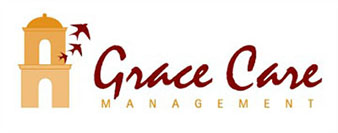One of the things that makes working with the frail elderly so different from other relationships is that you must help them face difficult issues without a lot of lead time.
Nurses generally get intimate with their patients quickly, needing to know about personal things like bowel habits and body fluids. But nurse care managers often function additionally as social workers or surrogate family members to help with even more difficult issues. Hard realities which may have been avoided all of a person’s life can come crowding into consciousness like noxious relatives in a one-room house. One of those realities is death.
Very early on in the relationship maybe even in the first few hours the question must be asked:
“Mr. Jones, if your heart were to stop and you were at peace, would you want us to try to start your heart again? Do you want CPR?” When put like that, most well aged or infirm people will signal an emphatic “No.”
San Diego home health care nurses can then fill out a “DNR” (Do Not Resuscitate) form both the doctor and patient must sign and post it in the home so that emergency personnel can assess immediately what level of intervention is appropriate.
The bottom line thus established, the difficult questions are not over. There is a wide continuum between health and cardiac arrest. What about when one becomes so sick that normal functions are hindered or interrupted and reestablishing them requires methods that are painful or highly distressing?
One of these gray areas regards the administration of food and fluids in a terminal state.
“If unable to feed yourself or swallow, how would you feel about tube feedings?” “If you were in a “persistent vegetative state” would you want to be kept alive by artificial means?” Many if not most again say no.
Some people though will want everything possible done no matter what condition they are in. Sometimes the patient is ready to let go but the family is not. What many people do not realize is that their wishes must be stated clearly in a Durable Power of Attorney for Health Care and/or other advanced directives. Not only must one’s right to life be safeguarded but one’s right to die as well.
If there are no directives and a crisis presents itself to EMT’s, doctors and nurses, they are under an ethical obligation to do everything they can to save a life. That’s great if the patient wanted to be brought back but what if it means cracking the ribs of a 92-year-old (not uncommon) while doing CPR who then will have to endure weeks or months of tortured experiences in the loneliness of a hospital ward only to die anyway?
What if it means having to place a nasogastric or stomach tube in an elderly person who has been suffering for years with some chronic degenerative disease and who really didn’t want to extend their life any further?
At every age there are many choices surrounding end of life issues. Those choices extend even to where one wants to die. Some people only feel secure in a hospital environment where high tech interventions are a call button away. Many people want to spend their last days and hours in the comfort of their own beds, in familiar surroundings and with the people they love. Thus, the popularity of San Diego home care and the San Diego hospice movement.
It’s especially satisfying to empower patients and families by presenting them with the many choices that are available to them in both sickness and health, death as well as life. All of our processes are sacrosanct or should be. They don’t belong to nurses, physicians, hospitals or any medical priesthood who has some esoteric knowledge and power that they may or may not share with us if we are “good” patients.
We must own them ourselves. Being open and positive about some of the most powerful moments of our lives can help us and those who are close to us experience our transitions in wiser, more compassionate and more truly human ways.
By: Cindy Hasz, Geriatric Care Manager


